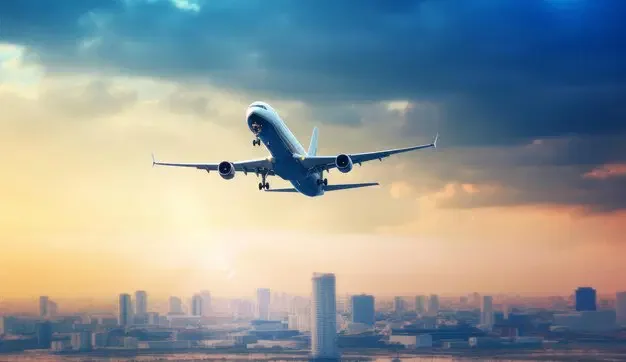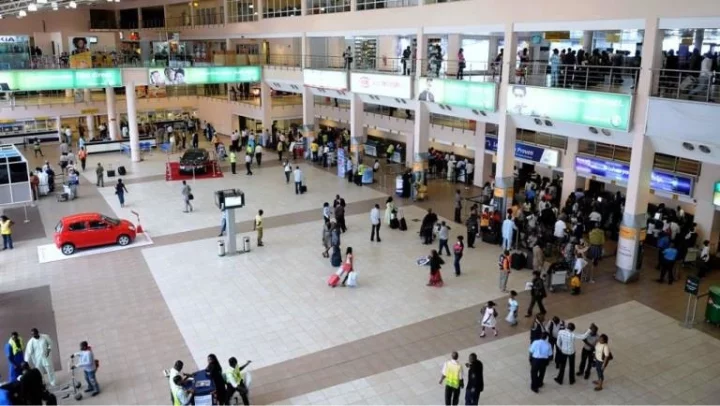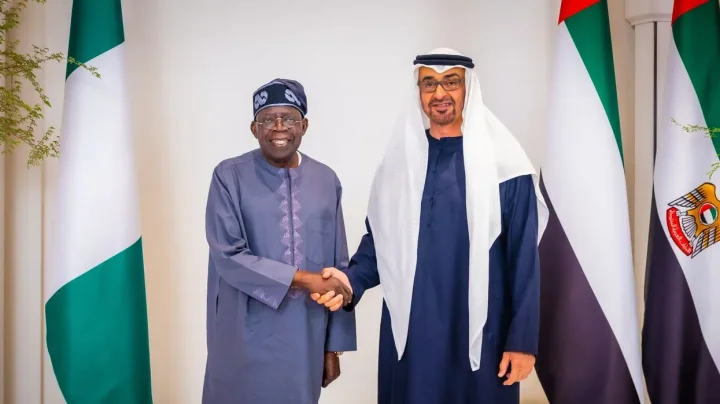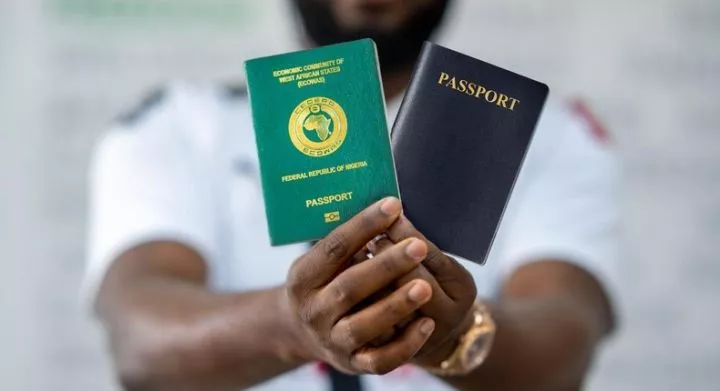
Africa's tourism industry is buzzing again. In 2024, over 66 million tourists visited the continent, bringing in $38 billion in revenue. That's no small feat. The sector's contribution to global GDP even hit $81 billion, outperforming big industries like automotive manufacturing and banking.
Despite this growth, flying across or out of Africa still feels like a luxury for many.
According to a 2024 study by the African Airlines Association (AFRAA), the average passenger pays for 3.5 different taxes and fees, totalling about $68 per international departure. That's just the average. In some countries, you could be paying four times that.
Here's a closer look at the 10 African countries with the highest international air ticket charges in 2024 and what else is going on beneath those hefty fees.
1. Gabon - $297.70
Flying out of Gabon will cost you nearly $300, making it the priciest country for international air departures in Africa. Even regional flights aren't much cheaper, coming in at $260. These costs aren't just ticket prices; they include airport taxes, navigation fees and security charges, which all pile up quickly.
Gabon is rich in oil and lush with forests, but its wealth hasn't spread evenly. While oil drives most of its income, the country is trying to diversify by investing in mining and tourism. Still, flying remains expensive for both locals and those looking to visit this central African country.
2. Sierra Leone - $294.00
Second on the list is Sierra Leone, where it doesn't matter if you're flying regionally or internationally, you'll pay $294 either way. That's a huge amount, especially considering the country's push to attract more tourists and investors.
This West African nation is still healing from its past. Decades of civil war and the Ebola crisis left deep scars. But there's hope. With growing investments in mining and agriculture and a government focused on recovery, Sierra Leone is on a slow but steady climb. Lowering air travel costs could go a long way in helping that momentum.
3. Nigeria - $180.00
Nigeria, Africa's most populous country, isn't cheap to fly out of either. With fees around $180 per international trip, travellers feel the pinch, especially given how often people fly for business, studies and family.
Nigeria is a giant on the continent. Its economy is powered by oil, music, movies and agriculture. But infrastructure gaps, policy uncertainty and high operating costs plague its aviation sector. Reducing these charges could open doors for more regional travel and economic growth.
4. Djibouti - $168.70
Don't let its size fool you. Djibouti has one of the highest departure costs at $168.70. As a small country located between the Red Sea and the Gulf of Aden, it charges a premium for air services partly due to limited competition and its strategic location.
Djibouti earns much of its income by serving as a global military and logistics hub. Hosting multiple foreign bases and a booming port economy, it thrives on services. Yet, with high unemployment and few natural resources, the country relies heavily on foreign investments and unfortunately, that doesn't make flying any cheaper.
5. Niger - $130.70
In Niger, flying out will cost around $130.70. These charges include everything from airport improvement fees to security taxes and they affect travellers already dealing with limited flight options.
Niger is rich in uranium but remains one of the world's poorest nations. It is battling challenges like food insecurity, desertification and armed conflict. While international aid helps keep key services running, building a more affordable travel system could improve regional trade and movement.
6. Benin - $123.40
Benin isn't far behind, charging $123.40 on average for international departures. While not as steep as others, it's still a big ask for travellers in a region where income levels are modest. These costs are made up of airport and passenger service fees.
Benin is known for its political stability and economic reforms. Cotton is a big export and the country is gradually positioning itself as a transit hub for landlocked neighbours. Lowering air travel costs could help attract more tourists and foreign investors to its growing cities and scenic coastline.
7. Senegal - $122.60
Senegal charges about $122.60 per international ticket in extra fees. With a well-connected airport in Dakar, the country is a key gateway to West Africa. But these high fees could limit growth, especially among budget-conscious travellers and regional flyers.
Economically, Senegal is on the rise. It has solid agriculture, growing tourism, and now, oil and gas discoveries that could transform its future. The government is also pushing digital reforms and infrastructure upgrades. But to truly boost travel and business, flight costs may need a second look.
8. Liberia - $115.00
Liberia charges $115 in taxes and fees for international flights, placing it eighth on the list. While lower than the others, it's still significant for a nation working hard to rebuild from decades of conflict and disease.
The country leans on natural resources like rubber and timber and with steady political progress, it's drawing international attention. But many citizens still face poverty and lower travel costs could open up access to education, healthcare and jobs abroad.
9. Ghana - $111.50
In Ghana, international air travel comes with about $111.50 in fees. That's on the lower side of this list, but still a notable add-on to airfare. These costs include security levies and airport service fees, which affect both tourists and Ghanaian travellers.
Ghana is often seen as a beacon of democracy and stability in West Africa. Its economy, built on gold, cocoa, and oil, is one of the region's strongest. With Accra fast becoming a travel and tech hub, making air travel more affordable could further fuel its rise.
10. Democratic Republic of the Congo - $109.90
Rounding off the list is the Democratic Republic of the Congo, where international travellers pay about $109.90 in departure fees. While the country has vast land and limited transport infrastructure, flying remains costly due to airport improvement charges and security levies.
The DRC is incredibly rich in minerals like cobalt and copper. But decades of conflict and weak infrastructure have held it back. Improving connectivity, especially by air, could be a game-changer for trade, tourism and development in one of Africa's most resource-rich yet underserved nations.

















Comments